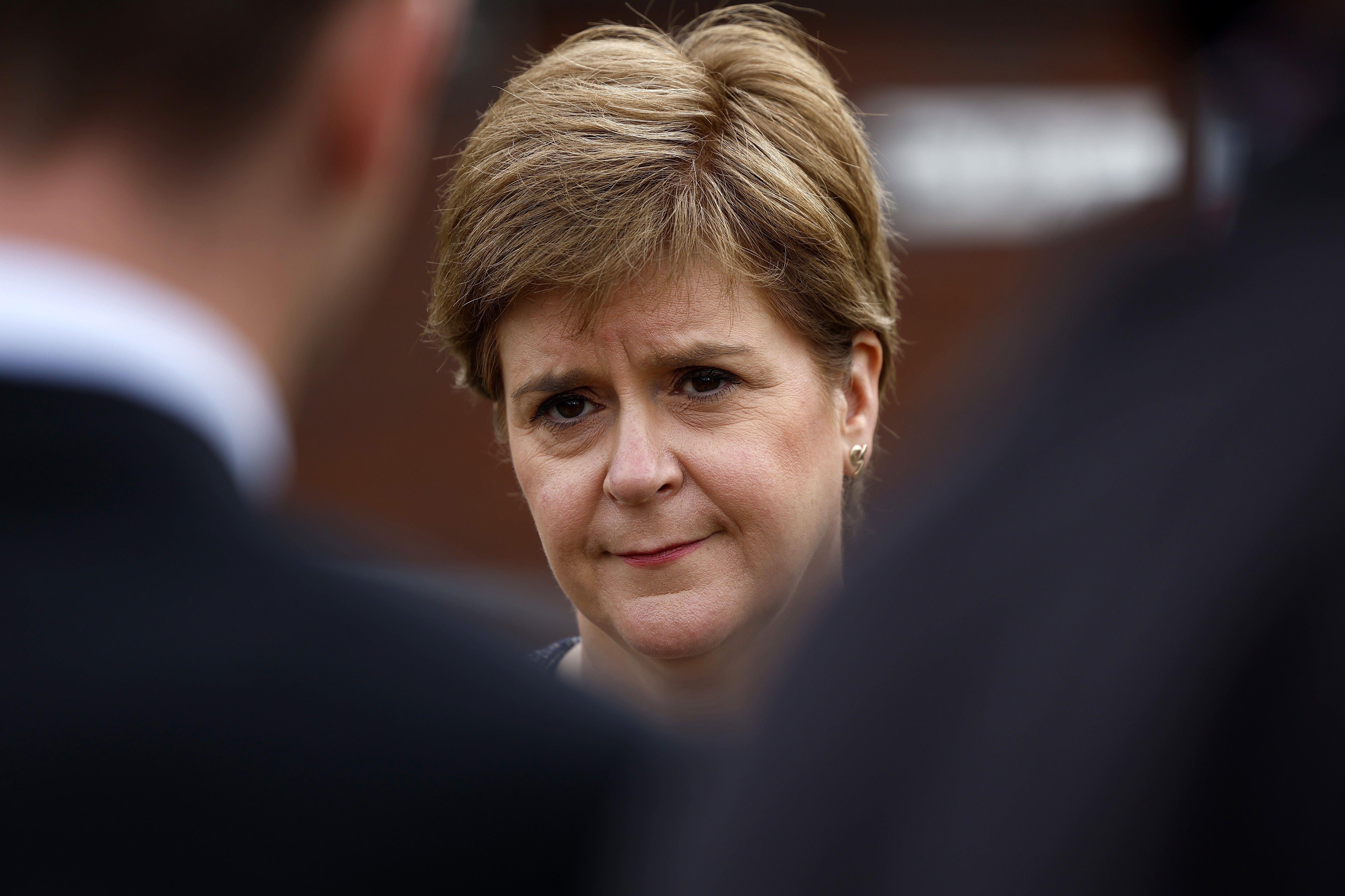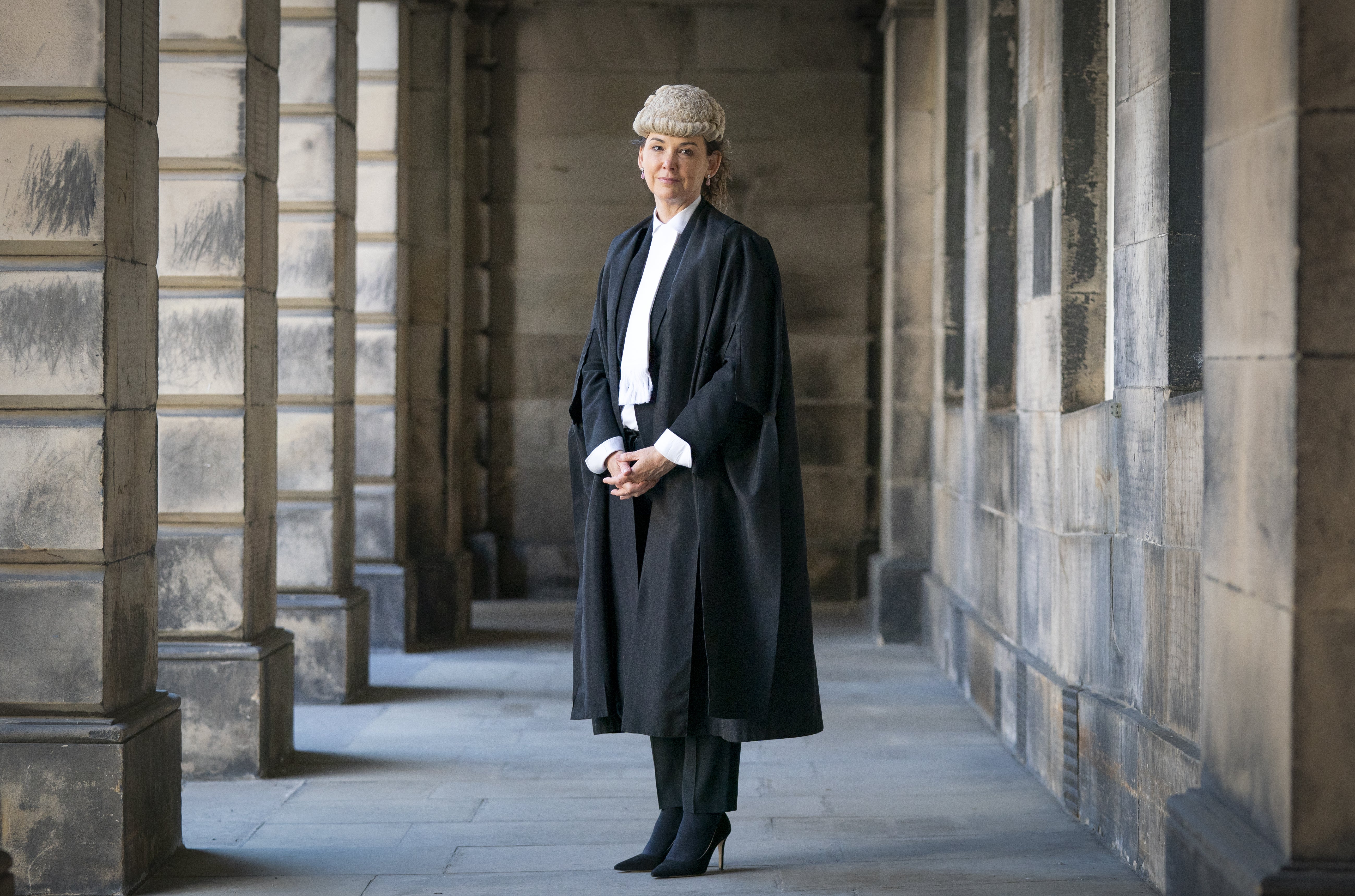
The Scottish Government’s case for holding a referendum on independence has leaned heavily on the vote being “advisory”, according to a court document filed by Scotland’s top law officer.
Lord Advocate Dorothy Bain QC referred a prospective Bill on a referendum to the UK Supreme Court earlier this month so judges can rule if it is within Holyrood’s powers.
Announcing that she would ask the Lord Advocate to make a referral, First Minister Nicola Sturgeon also said a request for a Section 30 order – which would grant Holyrood the power to hold another referendum – would be sent to Prime Minister Boris Johnson.
The request was rejected.
The referendum would have no prescribed legal consequences arising from its result. It is not, unlike some other referendums, self-executing— Dorothy Bain QC
In a 51-page filing, the Lord Advocate argues the Bill would not be “self-executing” and would have no real effect on the union – which is reserved to Westminster – but would simply be to “ascertain the wishes of the people of Scotland on their future”.
She wrote: “The legal effects of the Bill would be limited to facilitating the holding of a referendum vote, identifying those eligible to vote, the timing of the vote and affirming that the Referendums (Scotland) Act 2020 would apply.
“The Bill would not purport to alter or impede any legal rule constituting or affecting the union of the kingdoms of Scotland and England either directly or indirectly.
“The referendum would have no prescribed legal consequences arising from its result. It is not, unlike some other referendums, self-executing.”

It would not be right for the court to “speculate” on the actions of the Scottish Government after any vote on independence, she said.
“Beyond the immediate effect of ascertaining the will of the people of Scotland, the practical effects of an advisory referendum are speculative,” she wrote.
“The court ought not to engage in such speculation because it is not equipped to do so.”
The Bill, if the court “embraces the political consequences of any ‘Yes’ vote”, could be beyond the powers of Holyrood, she argued.
But she added: “If, however, its effect is determined by its legal consequences and immediate effect (obtaining the views of the Scottish people on the subject of a reserved matter), then it may not ‘relate to’ the reservation and thus would be within the competence of the Scottish Parliament.”

Ms Bain also stressed the importance of the question the court has been asked to answer.
“Despite the highly charged political context, it is a question of law,” she wrote.
“It is therefore a question that can only be authoritatively determined by this court.
“The Lord Advocated believes it is in the public interest that clarity be brought to the scope of the Scottish Parliament’s powers in respect of the issue.”
The court has said arguments will be heard on October 11 and 12.
A UK Government spokesperson said: “People across Scotland want both their governments to be working together on the issues that matter to them and their families, not talking about another independence referendum.
“We preparing our written case on the preliminary points we have noted, as well as the substantive issue, and will submit them to the court in accordance with its timetable.
“On the question of legislative competence, the UK Government’s clear view remains that a Bill legislating for a referendum on independence would be outside the legislative competence of the Scottish Parliament.”







